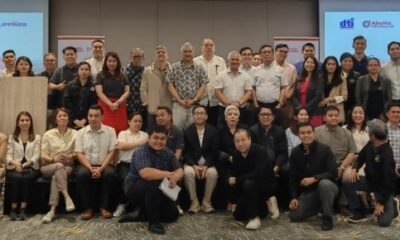News
Majority in Senate OK’d Ban on Political Dynasties
Thirteen or a majority of senators on Wednesday evening approved the consolidated bill banning political dynasties, effectively prohibiting immediate and extended relatives from running for public office to succeed or replace or simultaneously as an incumbent relative in the same area, among others.
Senate Bill No. 1765 was signed by Senate Minority Leader Frank Drilon, Senators Risa Hontiveros, Loren Legarda, Panfilo “Ping” Lacson, Grace Poe, Joseph Victor “JV” Ejercito, Paolo Benigno “Bam” Aquino IV, Nancy Binay, Sonny Angara, Ralph Recto, Sherwin “Win” Gatchalian, Leila de Lima, and Francis “Kiko” Pangilinan.
SBN 1765, under Committee Report No. 367 of the Committee on Electoral Reforms and People’s Participation, limits the prohibition to second degree of consanguinity or affinity. This covers spouses (legal and common-law), siblings (full or half-blood), parents, and children (legitimate, illegitimate, and adopted), and the spouses of these second-degree relatives.
The proposed law also prohibits an incumbent national elective official, including party-list representatives, to have these same set of relatives run for any position in the national and local levels, including as barangay captain, mayor, governor, or district representative in any part of the country. The vice versa also applies.
Pangilinan and De Lima conducted one hearing each on political dynasties and drafted the report.
Pangilinan is chairperson of the Senate Committee on Constitutional Amendments and Revision of Codes and vice chairperson of the Senate Committee on Electoral Reforms and People’s Participation, while De Lima is chairperson of the Senate Committee on Electoral Reforms and People’s Participation.
In a hearing last February 15, resource persons from the academe enumerated the reasons for the need to ban political dynasties:
1. The Constitution bans political dynasties. Congress needs only to define it.
2. Political dynasties are killing democracy.
3. Political dynasties cause poverty and inequality.
4. Political dynasties destroy fairness.
5. Political dynasties don’t allow others to serve as the way of picking leaders is biased toward political dynasties. Younger, more able leaders are kept from joining politics due to political dynasties.
6. People can’t exercise control over the elected.
7. Elections dominated by fat dynasties are abusive (not democratic/dictatorial).
senate.gov.ph

































